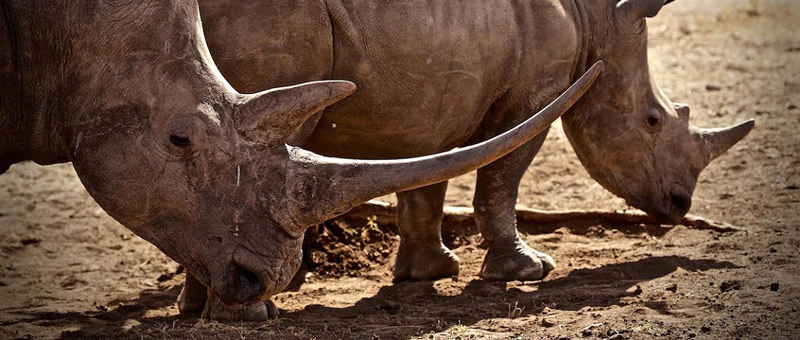On December 7, Jean-Philippe Nkaga, a notorious ivory trafficker and organizer of large-scale poaching in northern Gabon was arrested Minvoul. This is a repeat offender already sentenced in late 2011 to 5 months in prison on charges of illegal possession of firearms ammunition for large-scale poaching. He was then arrested by the National Agency for National Parks, in the Minkebe Park.
Following the arrest of an Imam in Minvoul with two elephant poachers August 8, 2013 (all sentenced to five months in prison) by the Judicial Police and Forestry, Nkaga had been denounced and judicial proceedings open against him. He was recognized as the owner of 17 kg of ivory seized then. But unfortunately he fled to the forest for several weeks, returning occasionally to Minvoul. He was eventually arrested by the Criminal Investigation and Forestry with support from Conservation Justice.
Nkaga is a real criminal. Upon his arrest in 2011, cannabis was also found. Several years before that, he had been imprisoned two years for a murder never really solved. He is dangerous and violent, and also resisted during his arrest, seriously biting an officer of the judicial police.
One of his brothers has also been also arrested for obstructing officers. The professionalism of the Judicial Police is to be praised in this situation, using strategy and patience to arrest a repeated offeder arrested several times.
Upon his release in 2012, various information confirmed that he maintained his illegal ivory trafficking activity. His modus operandi is well known. He uses Pygmy in Doumassi where he has a bar, his second wife being a Pygmy from a village nearby, the first being from Cameroon. The ivory is often sent directly to Cameroon through the forest. He not only organizes the mass killing of elephants, but also organizes the traffic itself.
As defined in the Forestry Code, hunting, taking, possession, transportation and marketing of fully protected species (elephant) are prohibited and violations vis-à-vis these species are punished from 3-6 months in prison with fines ranging from 100,000 to 10 million francs. In case of recidivism, the penalties are doubled.
This legislation seems ineffective against the abuse and the consequences of large-scale poaching in sustainable management of natural resources but also security. Indeed, the ivory traffickers encourage corruption, money laundering and weapons and ammunition uncontrolled entry, all with adverse and dangerous consequences. Strengthening this legislation is considered and is expected to deter networks organized in Gabon on ivory trade and all that follows.
During the Franco-African Summit of Heads of State in Paris on 7 and 8 December 2013 on peace and security issues of poaching were also discussed, confirming the existence of links between this activity and safety. The ivory and other wildlife products are actually used to supply militia and rebellions in some African countries and ivory trafficking promotes corruption and a source of insecurity money laundering financing criminal networks. Decisions are taken by different countries strengthen their laws, the solution must be international, whether at the country of origin and countries of destination, especially in Asia.
The original article here: http://en.gabonews.com/






